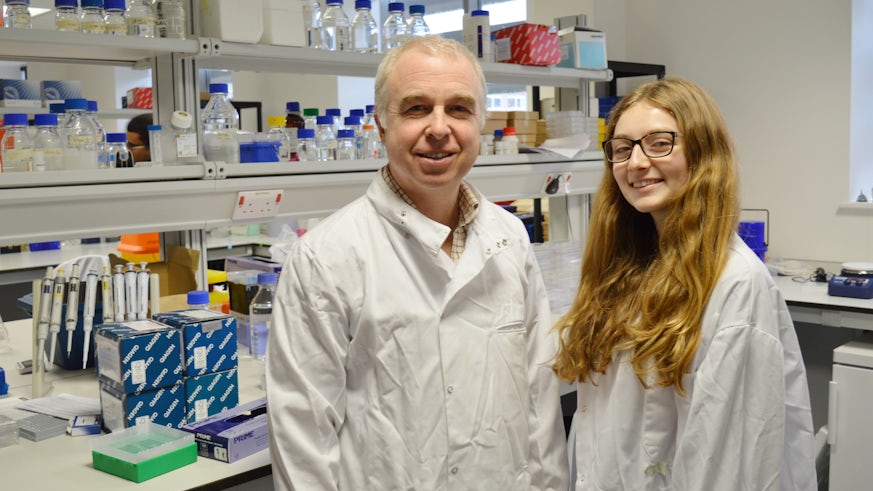Pancreatic Cancer Research Fund support search for better pancreatic cancer treatments
19 February 2019

Over £130,000 has been awarded to researchers at the European Cancer Stem Cell Research Institute to fund innovative research into targeting pancreatic cancer.
More than 80% of pancreatic tumours share a defect in their normal ability to kill off cancer cells, allowing tumour growth. Funding from the Pancreatic Cancer Research Fund is enabling researcher to target this defect to develop more effective cancer treatments.
Dr Richard Clarkson, Deputy Director of the European Cancer Stem Cell Research Institute, said: “To maintain healthy tissue, cells are monitored for abnormalities and cancerous cells are removed from the tissue.
“In pancreatic cancer we see that the mechanisms that would normally kill off cancer cells aren’t working correctly, allowing cancer cells to exist in the tissue and develop into tumours.
“We are interested in how this normally protective response can actually end up driving tumour growth in pancreatic cancer due to the presence of a protein called c-FLIP.
“c-FLIP is blocking the pancreatic cell’s ability to trigger cell death when it becomes cancerous.
“We have shown that by supressing the activity of c-FLIP in tumours, we can properly restore cell destruction of cancerous cells.”
The £131,897 funding from the Pancreatic Cancer Research Fund will enable researchers at the Institute to create models of pancreatic cancer and test a new therapeutic approach for the deadly disease.
Dr Catherine Hogan, European Cancer Stem Cell Research Institute, said, “We will use models of pancreatic cancer to investigate whether removing c-FLIP will be a potential treatment avenue in the future, either by directly targeting the pancreatic tumours themselves or preventing tumour spread throughout the body.
“This collaborative research will allow us to test a new anti-cancer agent being developed in the Institute, to bring improved pancreatic cancer treatments closer to reality.”
